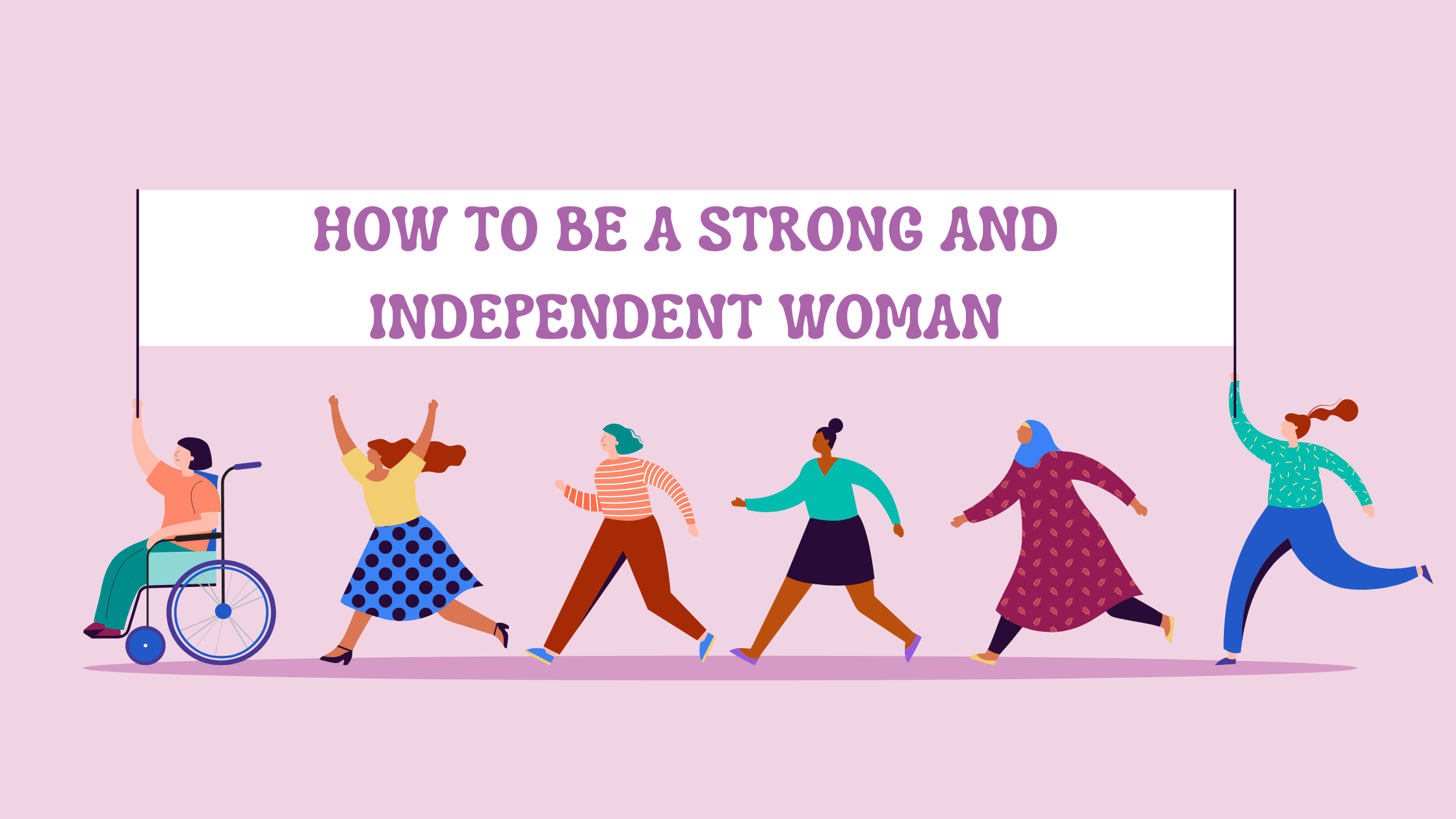Why Men Fear Strong Women: Understanding the Psychology Behind Male Insecurity
Why Men Fear Strong Women: Understanding the Psychology Behind Male Insecurity

In today's evolving society, the presence of strong, independent women continues to challenge traditional relationship dynamics. While many men celebrate and embrace powerful female partners, a surprising number still struggle with feelings of intimidation and insecurity when faced with confident, accomplished women. This phenomenon isn't about the women themselves—it's rooted in deep-seated psychological patterns, societal conditioning, and personal insecurities that many men haven't learned to address.
Understanding why some men fear strong women can help both genders navigate modern relationships with greater empathy, awareness, and success. Let's explore the psychological reasons behind this dynamic and what it means for building healthy, balanced partnerships in the 21st century.
Fear of Losing Control
One of the most fundamental reasons men feel threatened by strong women stems from the fear of losing control. For generations, men have been socialized to believe they should be the decision-makers, providers, and leaders in relationships. When a woman demonstrates her own capacity to lead, make autonomous decisions, and chart her own course, it can feel disorienting to men conditioned by traditional gender roles.

Strong women don't need someone to control their lives—they're perfectly capable of managing their own affairs. This independence can trigger anxiety in men who equate leadership with masculinity. The reality is that control is often an illusion we create to feel secure. Healthy relationships thrive on partnership and mutual respect, not dominance and submission.
Fear of Inadequacy
When confronted with a woman who excels professionally, intellectually, or financially, some men experience profound feelings of inadequacy. They begin comparing their own achievements against hers, questioning whether they measure up or bring equal value to the relationship. This comparison trap becomes especially toxic when a man's self-worth is tied exclusively to external accomplishments.
Psychology reveals that this fear of inadequacy often reflects deeper insecurity issues rather than actual incompetence. A successful woman isn't a threat to a secure man—she's an asset, a partner, and an inspiration. The key lies in recognizing that relationships aren't competitions where one partner must outshine the other, but collaborations where both individuals contribute unique strengths.
The Comparison Trap
Men who struggle with this insecurity frequently make excuses like "I need to focus on my career first" or "You deserve someone better." These statements mask the underlying fear that they aren't successful enough, accomplished enough, or worthy enough to stand beside a powerful woman. Breaking free from this pattern requires men to develop self-worth independent of comparison.
Threatened Masculinity and Power Dynamics
Traditional masculinity often emphasizes dominance, stoicism, and being the primary provider. Strong women who embody confidence, assertiveness, and financial independence can inadvertently challenge these conventional notions of manhood. For men whose identity is deeply rooted in traditional gender roles, this challenge can feel like an attack on their very sense of self.

When a woman takes the lead, earns more money, or displays greater competence in certain areas, some men interpret this as emasculation. They fear a power shift where their traditional role becomes obsolete. However, modern masculinity is evolving to embrace partnership over patriarchy, emotional intelligence over emotional suppression, and shared success over solo achievement.
Fear of Vulnerability
Strong women often possess remarkable emotional intelligence and honesty. They communicate directly, expect authenticity, and aren't afraid to address difficult topics. For men who've been conditioned to suppress emotions and avoid vulnerability, this level of openness can feel threatening and uncomfortable.
A powerful woman holds up a mirror that reflects a man's own insecurities, fears, and emotional wounds. Rather than facing these uncomfortable truths, some men choose to retreat. They use excuses like "I don't want to get hurt" or "I need time to figure things out" to avoid the emotional intimacy that strong women often seek.
The Courage to Be Vulnerable
True strength isn't found in emotional armor but in the courage to be vulnerable. Men who embrace their emotions and allow themselves to be seen authentically often discover that strong women appreciate and respect this openness. Vulnerability becomes a bridge to deeper connection rather than a weakness to hide.
Societal Conditioning and Gender Norms
From childhood, boys receive countless messages about what it means to be a man. Media, family dynamics, peer groups, and cultural narratives reinforce specific expectations: men should be strong, unemotional, dominant, and in control. Women, conversely, have been historically portrayed as supportive, nurturing, and subordinate.

When reality doesn't match these outdated scripts—when a woman is assertive, ambitious, and self-sufficient—it creates cognitive dissonance. Men conditioned by traditional gender norms may feel confused, threatened, or uncomfortable. Comments like "You're too much for me" or "I'm not used to women like you" reveal this clash between expectation and reality.
Breaking free from these societal constraints requires conscious effort. Both men and women benefit when they challenge limiting gender stereotypes and embrace more expansive, authentic expressions of identity.
Fear of Not Being Needed
Humans have a fundamental need to feel valued and necessary. For many men, their sense of worth comes from being needed—as providers, protectors, or problem-solvers. A strong, independent woman who can handle her own finances, fix her own problems, and navigate life's challenges independently may inadvertently trigger fears of obsolescence.
The truth is that being needed isn't the same as being wanted. Strong women don't need men to complete them, but they choose partners who enhance their lives. The most fulfilling relationships are built on mutual choice, not mutual dependency. Men who understand this distinction discover that being wanted for who you are is far more meaningful than being needed for what you provide.
Moving Forward: Building Healthy Partnerships
Understanding these fears is the first step toward transcending them. For men who recognize these patterns in themselves, growth comes through self-reflection, challenging internalized beliefs, and developing emotional resilience. For strong women, this knowledge offers insight into dynamics that may have seemed confusing or personally rejecting.
For Men: Embrace Growth
Acknowledge your insecurities without shame. Recognize that a strong partner isn't a threat but an opportunity for mutual growth. Develop self-worth that isn't dependent on comparison or dominance. Practice vulnerability and emotional openness. Most importantly, understand that partnering with a strong woman doesn't diminish your masculinity—it demonstrates confidence, security, and emotional maturity.
For Women: Choose Wisely
Your strength isn't something to diminish or apologize for. The right partner will celebrate your accomplishments, not feel threatened by them. Look for men who demonstrate emotional intelligence, security in their own identity, and genuine admiration for your capabilities. Remember that you deserve someone who sees your strength as an asset, not a challenge.

Frequently Asked Questions
Are all men intimidated by strong women?
No, not all men feel threatened by strong women. Secure, emotionally mature men often actively seek partnerships with confident, accomplished women. The intimidation factor typically affects men with unresolved insecurities, traditional gender role expectations, or limited experience with emotionally intelligent relationships.
How can I tell if a man is intimidated by my strength?
Signs include: making excuses to avoid commitment, seeming uncomfortable with your accomplishments, attempting to diminish your achievements, displaying controlling behavior, avoiding emotional vulnerability, or frequently comparing himself to you. Pay attention to whether he celebrates your success or seems threatened by it.
Can men overcome their fear of strong women?
Absolutely. With self-awareness, willingness to challenge internalized beliefs, and commitment to personal growth, men can overcome these insecurities. Therapy, mentorship, and exposure to healthy relationship models all support this transformation. The key is recognizing the fear and choosing growth over avoidance.
Should strong women tone themselves down to attract partners?
Never. Diminishing your authentic self to make others comfortable is a recipe for resentment and unfulfilling relationships. The right partner will appreciate and celebrate your strength. Anyone who requires you to become smaller isn't the right match for you.
Found This Article Helpful?
Share it with someone who needs to read this today! Help us spread awareness about healthy relationship dynamics and emotional growth.